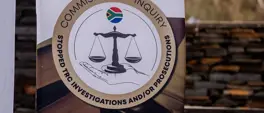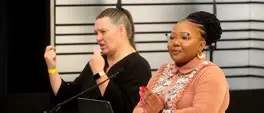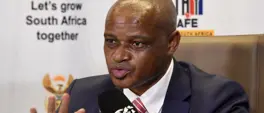Version '2.0' of Transformation Fund still a disaster waiting to happen, argues SME empowerment group founder
Paula Luckhoff
5 November 2025 | 20:32The DTIC has reportedly revised its plan for the controversial R100 billion Transformation Fund, but Unconventional CA's Hilten Kesahve says the fundamentals have not changed.

Minister of Trade, Industry and Compeition, Parks Tau. Photo: DTIC
The Department of Trade, Industry and Competition (dtic) has revised its controversial plan for a R100 billion Transformation Fund, News24 reports.
RELATED: Tau doesn't expect R100bn transformation fund to threaten existing B-BBEE legislation
The new concept paper -not yet released for public circulation- provides better assurances of accountability and added incentive for participation, writes Carol Paton.
It then remains to be seen whether 'Version 2.0' will receive a better general reception than the original concept, but Hilten Kesahve, CEO of SME empowerment organisation Unconventional CA, remains skeptical.
He cautions that while there is a promise of fresh governance, the Fund risks repeating past mistakes by recentralising transformation rather than enabling it at the grassroots.
'In simple terms, I have no confidence (that major concerns have been addressed) - even though there is this new and improved element from a governance perspective, the fundamentals haven't changed', he says.
"It’s still a centralised structure that risks becoming a network of pals hiring pals. This is a disaster waiting to happen."
Kesahve believes that real transformation will only happen if the onus is on corporates to take responsibility as active citizens, not just as compliance players chasing ESD points, as he puts it.
What is missing in this new iteration of the Fund is clear alignment with ESG (Environmental, social, and governance) and the UN Sustainable Development Goals (SDGs), he says.
Without this element or corporate responsibility, it’s hard to see how this model drives sustainability or genuine inclusion, Kesahve concludes.
Scroll up to the audio player to listen to the full conversation
Get the whole picture 💡
Take a look at the topic timeline for all related articles.
Trending News
More in The Money Show

8 January 2026 20:14
Lessons in marketing and reimagining the continent from Brand Africa founder Thebe Ikalafeng

8 January 2026 19:50
Icasa 'serious' about changing rules to enable rollover of unused mobile data

8 January 2026 18:39
Manufacturing activity dropped further in December, but sector optimistic about 2026













